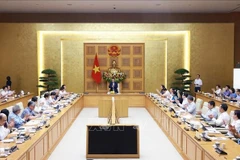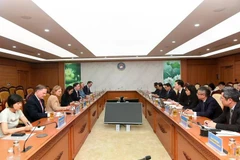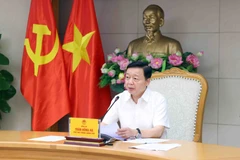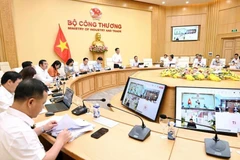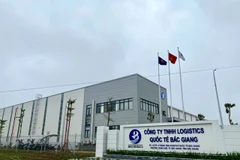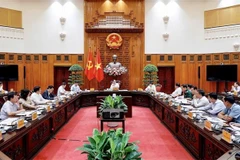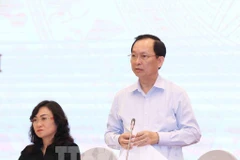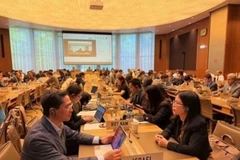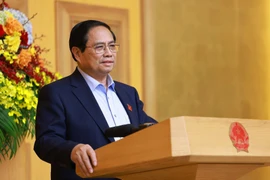MarioManiewicz, ITU Development and Policy Director, affirmed hisorganisation’s willingness to help Vietnam build policies andstrategies for the development of broadband services nationwide.
Vietnam is enjoying one of the world’s fastest growth rates in termsof telecommunications, and telecommunication services –particularlybroadband – will develop further in the next five years, delegates fromforeign businesses and international organisations agreed at the eventthemed, “Getting Vietnam online, with broadband for all”.
MarioManiewicz suggested Vietnam telecommunication firms focus ondevelopment of broadband services at schools, especially in rural,remote areas, with an effort of narrowing development gaps betweenareas.
The country saw a strong growth in broadband services overthe past five years, increasing the number of subscribers from 210,000in 2005 to 3.6 million in 2010, said Pham Manh Lam, Vice Head of theMinistry of Information and Communication’s Information-CommunicationStrategy Institute.
The ministry is devising a policy to supportthe development of the services nationwide. By 2015, Vietnam isexpected to basically complete the broadband network to communes andwards nationwide, provide internet links to all schools and providecoverage of broadband mobile services to 85 percent of the population.
Thecountry is striving to complete the broadband network at most villagesnationwide and provide broadband mobile service coverage to 95 percentof the population by 2020.
Deputy Minister Tran Duc Laihighlighted the positive impacts on sustainable and thriving economicgrowth from the building and development of the broadband services,affirming the Government of Vietnam’s priority to the development oftelecommunications and creation of favourable conditions for the countryto become an attractive, trusworthy destination of investment andbusiness for foreign investors, especially telecommunication and ITgroups./.

